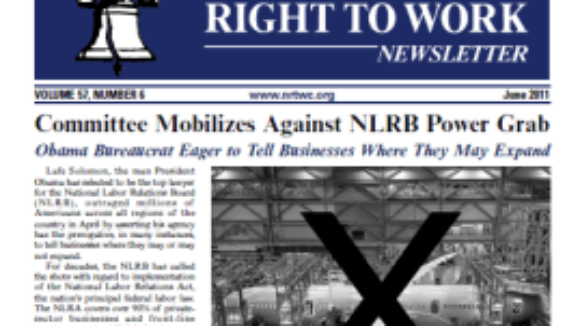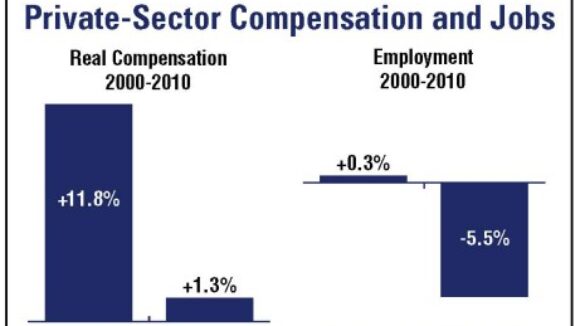Right To Work Committee Mobilizes Against NLRB Power Grab
If the Obama-selected top lawyer for the National Labor Relations Board gets his way, Boeing will have no real choice but to abandon a brand-new $2 billion plant and 1,000 good jobs in Right to Work South Carolina. Obama Bureaucrat Eager to Tell Businesses Where They May Expand (Source: June 2011 NRTWC Newsletter) Lafe Solomon, the man President Obama has selected to be the top lawyer for the National Labor Relations Board (NLRB), outraged millions of Americans across all regions of the country in April by asserting his agency has the prerogative, in many instances, to tell businesses where they may or may not expand. For decades, the NLRB has called the shots with regard to implementation of the National Labor Relations Act, the nation's principal federal labor law. The NLRA covers over 90% of private-sector businesses and front-line employees. The NLRB is thus, no doubt, powerful. Nevertheless, the claim of power by NLRB Acting General Counsel Solomon in his April 20 complaint filed to block Boeing from initiating a new aircraft production line in Right to Work South Carolina is remarkable. As economist Arthur Laffer and senior Wall Street Journal editorial page economics writer Stephen Moore noted in a pungent op-ed appearing in the Journal May 13, this is "the first time a federal agency has intervened to tell an American company where it can and cannot operate a [new] plant within the U.S." Well-informed apologists for compulsory unionism like New York Times labor reporter Steven Greenhouse and former Clinton-appointed NLRB Chairman William Gould don't dispute that the Boeing complaint is, to quote Mr. Greenhouse, "highly unusual." Acting General Counsel: Sensible Business Decision Equals 'Anti-Union Animus'



